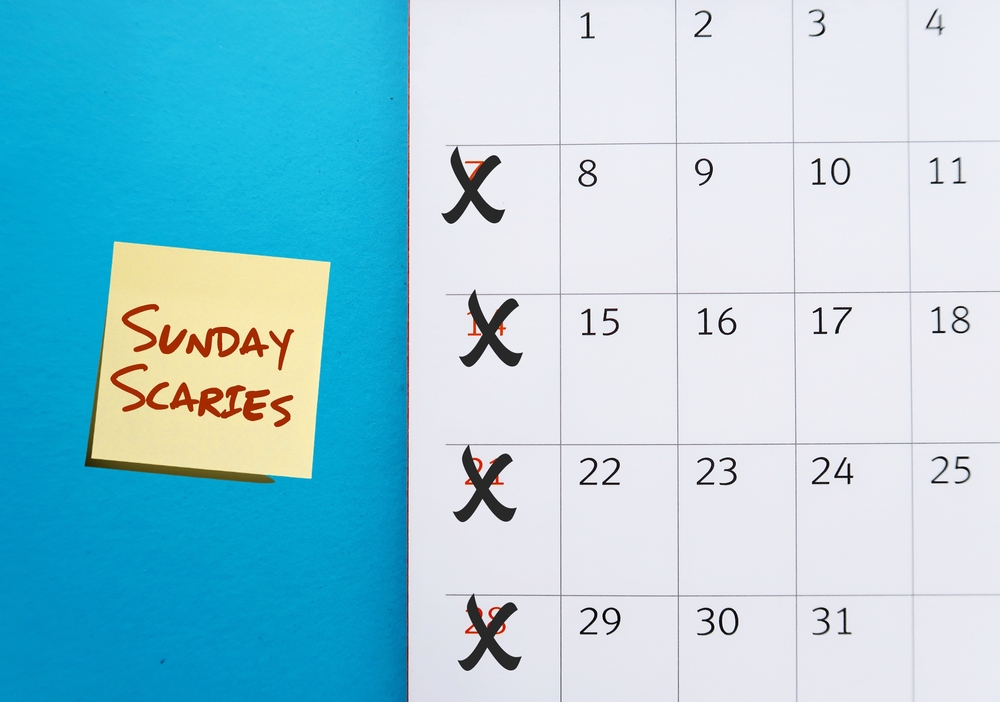
Weekends just don’t seem long enough to me. On Friday, you are exhausted from a long work week. Saturdays are for running errands that you couldn’t get done on weekdays. And then, come Sunday, you’re left dreading the work week ahead.
But while Sunday creeps aren’t a new phenomenon, they seem to have gotten worse in recent years, which may have a lot to do with the way we view work/life balance in this country. Here’s why you get the Sunday creeps and what you can do about it.
What are the Sunday fears?
According to Alex Dimitrioupsychiatrist at Menlo Park Psychiatry and Sleep Medicine in Menlo Park, California, there is a level of dread that goes along with starting the work week on Monday.
This fear can be accompanied by restlessness and delay in going to bed on Sundays. “It’s the kind of fear and loathing that builds up as the end of Sunday approaches,” says Dimitriou.
Sunday jitters are really a level of performance anxiety that tends to take over, Dimitriou says, almost like the feeling you get before giving a speech or taking a big exam. With it comes the expectation and feeling that you have to show up and do your best work.
A certain level of anxiety is normal because it helps you to be prepared and give your best. But when anxiety becomes uncomfortable and bothersome or affects your sleep, it may be something worth paying more attention to, Dimitriou says.
Read more: The science of sleep
Have Sunday’s fears worsened?
The pandemic could play a role in exacerbating Sunday’s fears, Dimitriou says. “With COVID-19, people got used to working from home and there was a comfort level in that. I’ve seen more issues with people switching gears as they have to go back to the workplace,” he says.
The nature of the work may also exacerbate Sunday fears because the hours employees are expected to work and the overall demands on their time have changed over the past 50 years.
The availability of technology such as smartphones and home offices has created a “blurring of the boundaries” between work and home life, which, Dimitriou says, means people never recover from the work week. “Because technology has entered our lives, we’re never disconnected, and people may not be fully recharged at the end of the weekend,” he says.
Read more: Does blue light damage the skin?
How to get rid of Sunday dreads
One of the most important things you can do on Sunday is go to bed. Don’t try to extend your weekend by staying up later, because that will make your Monday that much more stressful, Dimitriou says.
Jonathan Alpertpsychotherapist and author of Be Fearless: Change Your Life in 28 Days, says it’s best to avoid postponing your preparations from Monday to Sunday. “At the end of each work week, take 5 to 10 minutes to prepare for the week ahead by tidying up your workspace, tying up loose ends, and making a to-do list. Investing time now will help set you up for the next 48 hours,” he says.
Also, don’t go overboard with your weekend schedule; take as much time as possible to rest and recharge from the work week so you don’t dread Monday, says Alpert. When Sunday rolls around, plan your activities according to your mood. “If you usually feel depressed on Sundays, then organize a fun activity like a special dinner at a restaurant or going out with friends,” he says.
Finally, take a deeper look at what is causing the fear. Is it fact or fiction? Does your boss really expect you to work from home all weekend or is that just an assumption you made up in your head? Sometimes we put fears in our heads that aren’t based in reality, says Alpert.
Fortunately, there are many things you can do to reduce your Sunday fears, and the most important thing is to use the weekend the way it was meant to be used. Relax, recharge, unplug, spend time in nature, have fun with family and friends, and go to sleep at a reasonable hour. After all, work is only one part of who we are, and the weekend was meant to cultivate other important aspects of our lives. It shouldn’t be spent dreading the work week ahead.
Read more: The biology of stress in your body

